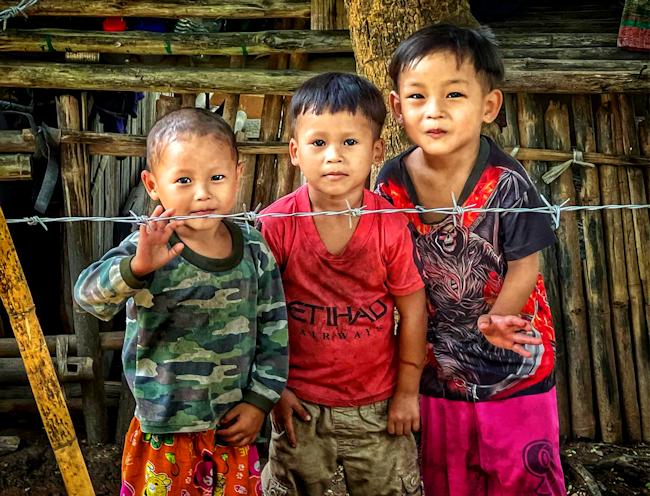Along the rugged border between Thailand and Myanmar, nestled amidst dense jungle terrain, lie a series of refugee camps that have become home to thousands of displaced individuals, many of whom are children. Among these camps are Mae Sot and Umpiem, where the Shah and Karen ethnic groups have sought refuge from the ongoing conflict in Myanmar.
Life in the refugee camps is far from easy. Children face numerous challenges, including limited access to education, healthcare, and sanitation. Yet, amidst these hardships, there is also a remarkable resilience and determination among these young individuals.
Education: A Path to a Brighter Future
Education is a lifeline for refugee children, providing them with the skills and knowledge they need to build a better future. Despite the challenges, many children in the Mae Sot and Umpiem camps are eager to learn and make the most of the educational opportunities available to them.
In Mae Sot, the UN Refugee Agency (UNHCR) has established a number of schools that provide primary and secondary education to refugee children. These schools are often overcrowded and underfunded, but the dedicated teachers work tirelessly to provide their students with a quality education.
In Umpiem, the Karen Women’s Organization (KWO) has played a crucial role in ensuring that refugee children have access to education. The KWO has established a network of schools throughout the camp, providing education to thousands of children.
Healthcare: Protecting the Health of Young Lives
Access to healthcare is another critical issue for refugee children in Thailand. The camps often lack adequate medical facilities and supplies, making it difficult to provide children with the care they need.
Despite these challenges, there are a number of organizations working to improve healthcare for refugee children in Thailand. The UNHCR and other humanitarian organizations provide essential medical services, including vaccinations, treatment for common illnesses, and maternal health care.
Sanitation: A Challenge with a Ripple Effect
Sanitation is a major challenge in the refugee camps, with overcrowded living conditions and limited access to clean water and sanitation facilities. This can lead to the spread of diseases, particularly among children.
Organizations such as UNICEF are working to improve sanitation in the camps, providing clean water sources, constructing latrines, and educating residents about hygiene practices.
Resilience and Determination: A Beacon of Hope
Despite the challenges they face, Shah and Karen refugee children in Thailand demonstrate remarkable resilience and determination. They are eager to learn, to play, and to build a better future for themselves and their families.
Their stories are a testament to the human spirit, reminding us of the incredible strength and resilience that children can possess even in the most difficult circumstances.


